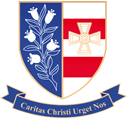Key Stage 4:
BTEC Engineering: Our vocational engineering courses at both key stages 4 and 5 are designed to give students a practical knowledge of engineering in a wide range of contexts. Exciting collaboration with local universities and businesses ensures that enrichment opportunities are being developed with our engineering students in mind such as university visits and industrial placements. Students focus on product development and improvement employing their problem solving initiative to evaluate and innovate.
Engineering Learning Journey Year 10 & Year 11
Key Stage 5:
Engineering underpins all products and services globally. Offered as a single award qualification, this course will give you generic, transferable skills which allow you to pursue a broad range of engineering pathways.
You will undertake four separate modules covering a range of technical skills and industrial practices.
Unit 1 is a two-hour examination. The 80 mark paper is made up of a mixture of mathematics and physics questions which focus on engineering principles and their applications within given design scenarios.
Unit 2 is an internally assessed project based team engineering task. Learners must work together, communicating effectively to complete the design and manufacture of a specified product considering effective people management, health and safety and appropriate material and process selection.
Unit 3 is externally assessed through a set task completed under supervised conditions. Learners are given a case study to prepare two weeks in advance before a supervised period of ten hours where they will follow a standard development process interpreting a design brief, generating initial ideas, preparing a design proposal and evaluating it against appropriate design and engineering requirements.
Unit 9 is a work experience module which has been selected in order to allow students to focus their studies into a specific area of interest, or to explore their future career opportunities. Areas where work experience may be considered include specialised engineering in a broad range of local companies, Computer Aided Design and Manufacture, Welding, Machining processes and Fabrication.
Potential Career Opportunities
The breadth of this course means that the full range of engineering career options are available to learners including telecommunications, aerospace, space technology and exploration, civil engineering, architecture, robotics, automotive design, construction, marine engineering and many more.
